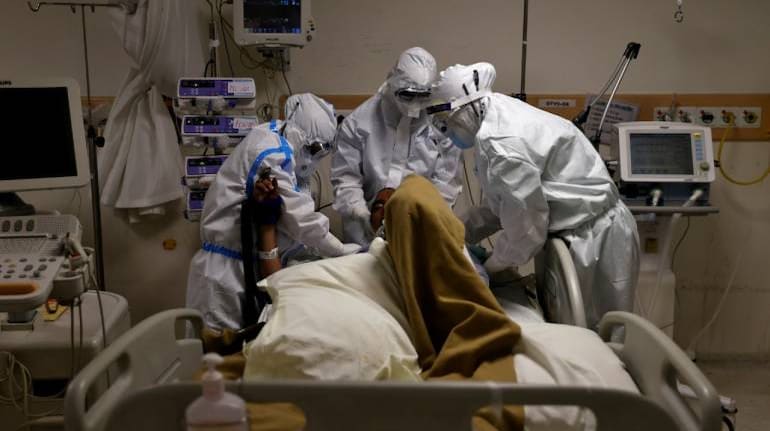



The calculation of deaths due to Covid-19 in India is “quite complex” and there are “no definite answers”, former Indian Council of Medical Research (ICMR) scientist Dr Raman Gangakhedkar told News18.com, responding to the latest data released by the World Health Organization (WHO), which claims that Covid could have killed as many as 47.4 lakh people in India in 2020-21.
The figure, disputed by the Indian government, is nearly 10 times the country’s official Covid death toll of 4.81 lakh at the end of 2021.
The epidemiologist, who was the face of the country’s apex medical research agency during government briefings on Covid-19 last year, said when a modelling exercise is done, certain assumptions have to be used when data is not available.
“India is a large country with a population over 134 crore. Here, health infrastructure, quality and timelines of data reporting vary between states. Use of one assumption for all states may not be appropriate,” he said.
Gangakhedkar, who was involved in the prevention and control strategies against the Human Immunodeficiency Virus (HIV) epidemic in India, said such random modelling exercises threw surprising results while estimating the prevalence of HIV in India.
“For instance, while estimating the number of HIV infections in India, in 2005-06, we tied up with the National Family Health Survey (NFHS). The sample size of the survey is large and representative to depend upon.” The estimated number for HIV-infected individuals for 2005 was 52.6 lakh.
“When the assumption was replaced with actual data from NFHS, the HIV estimate dropped to 25.4 lakh in 2006. Thus, using actual data from the NFHS, the disease burden dropped by half,” he said, while adding, “It wasn’t true, but this is how changing assumptions impacts modelling exercise.
They tend to inflate or deflate the original number. Otherwise, how was it possible that the prevalence of HIV got reduced by 50% within a year?”
Key Factors
Some key factors which play a crucial role in estimating disease-specific deaths are attribution, quality of registries and segregation of deaths due to other factors, he said.
Attribution is one of the most challenging parts. “Covid hits people with co-morbid conditions the most. It is difficult to attribute if the death was due to Covid or the co-morbid condition.”
Also, the quality registry system of births and deaths is not uniform in every state, especially remote districts of India. “It can be one of the very big reasons that the actual figures remain unavailable.”
Also, during the period of lockdown, people were not moving out of the house because of the fear of infection.
“Meanwhile, people who had developed or were already fighting deadly diseases such as tuberculosis and their diagnosis of treatment got delayed as they did not want to move out due to the fear of infection. A section of the population witnessed such deaths as well.”
Discover the latest Business News, Sensex, and Nifty updates. Obtain Personal Finance insights, tax queries, and expert opinions on Moneycontrol or download the Moneycontrol App to stay updated!
Find the best of Al News in one place, specially curated for you every weekend.
Stay on top of the latest tech trends and biggest startup news.